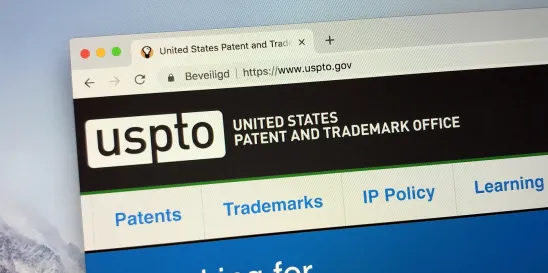With the U.S. Supreme Court beginning a new session, many are wondering what new issues the Court will address this term. One case the Court is scheduled to hear involves the relationship between the Lanham Act and First Amendment. Specifically, the Court will determine whether Section 1052(c) of the Lanham Act, which prohibits individuals from registering for a trademark that includes the name of a living person without their consent, violates the free speech clause of the First Amendment.
A Little Background
In 2018, California attorney Steve Elster applied for a trademark for the slogan “TRUMP TOO SMALL.” The U.S. Patent and Trademark Office (PTO) rejected Elster’s application, citing Section 1052(c) of the Lanham Act. In response, Elster argued that refusing his trademark application violated his free speech right to criticize public officials. The PTO was not persuaded by Elster’s First Amendment claim, deeming it irrelevant whether the trademark was intended to be an exercise of free speech rights or political commentary, because there is “no statutory or case law carve out for political commentary.” Elster appealed to the PTO’s Trademark Trial and Appeal Board (TTAB), again arguing that the Lanham Act’s prohibition was an unconstitutional restriction on free speech. The board denied Elster’s appeal.
The Appeal
Elster then appealed the board’s decision to the U.S. Court of Appeals for the Federal Circuit. In February 2022, a three-judge panel reversed the TTAB’s decision and found that applying Section 1052(c) of the Lanham Act to prohibit Elster’s trademark application was unconstitutional content-based discrimination. Because trademarks are considered a form of private speech, the Federal Circuit’s decision focused on “whether the government has an interest in limiting speech… if that speech involves criticism of government officials.” According to the panel, Section 1052(c) must be subject to some form of heightened constitutional scrutiny. In this regard, the panel found that statute would fail to satisfy both strict and intermediate scrutiny “because the government does not have a privacy or publicity interest in restricting speech critical of government officials or public figures in the trademark context…” Therefore, while the Court held that the application of Section 1052(c) to Elster’s trademark was unconstitutional, the Court did not decide whether the statute itself was unconstitutional. However, the Court did suggest as much. Specifically, the panel commented that the statute “raises concerns regarding overbreadth… [and] a substantial number of [it’s] applications would be unconstitutional.”
The PTO appealed the Federal Circuit’s decision, and on June 5, 2023, the Supreme Court granted the government’s petition for a writ of certiorari. The Court is scheduled to hear oral arguments November 1, though how the Court will rule remains to be seen. This case highlights the juxtaposition of protecting free speech while ensuring that individuals retain their privacy and publicity rights. Whatever the Court decides, the decision will have consequences for both First Amendment and intellectual property law. Follow Bradley’s IP IQ blog for updates after oral arguments in November.




 />i
/>i
